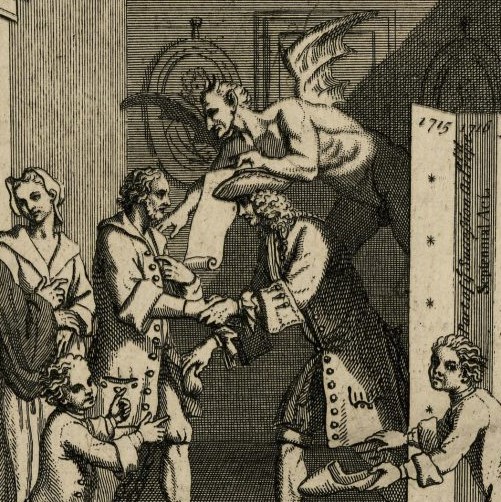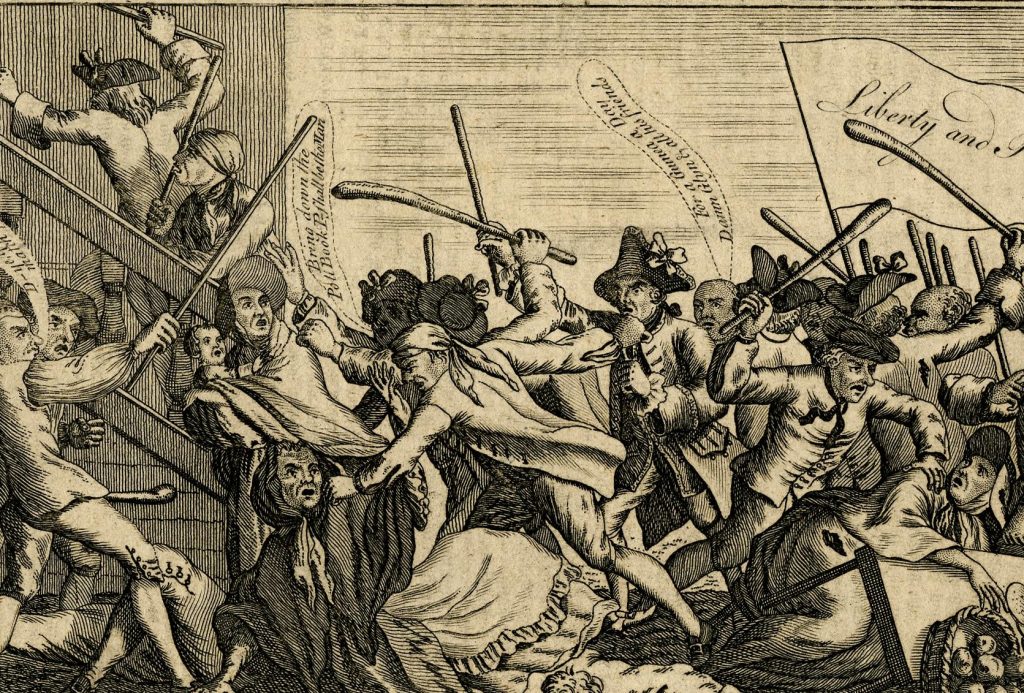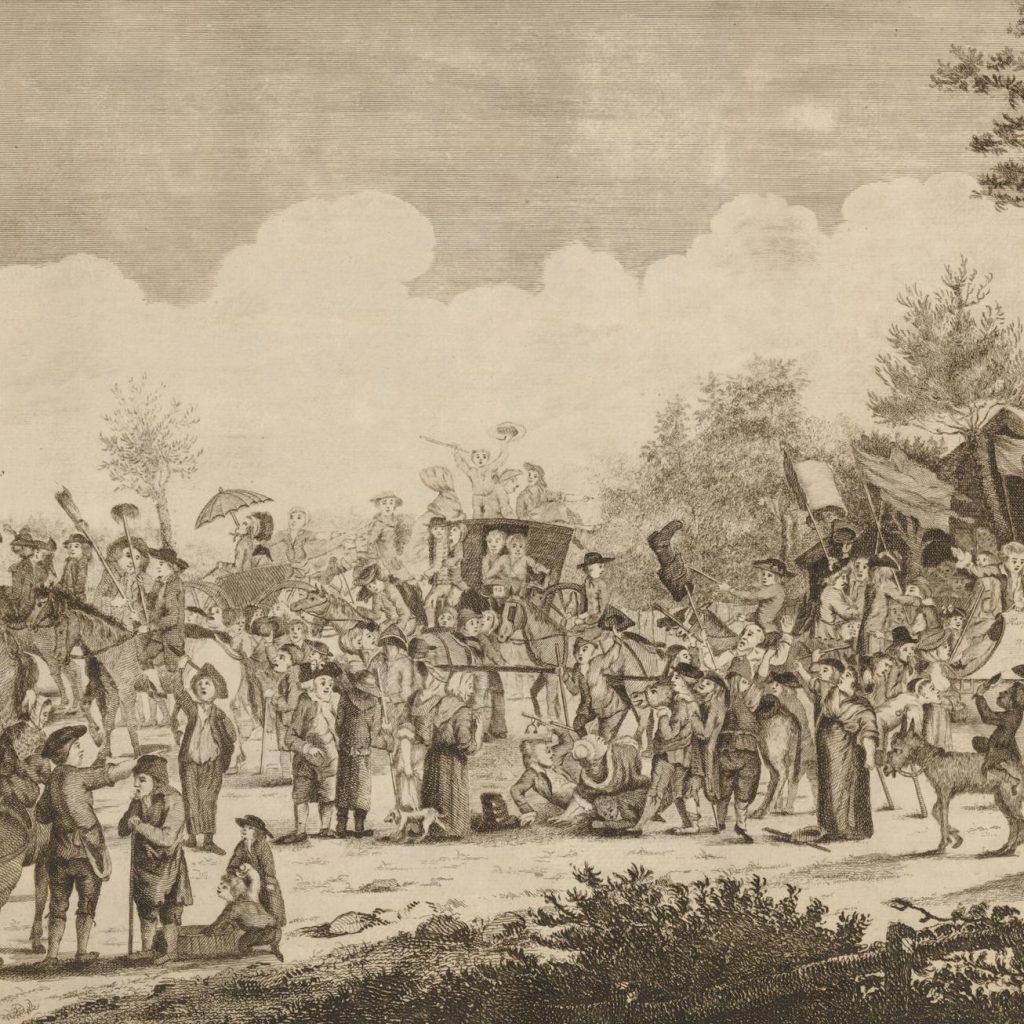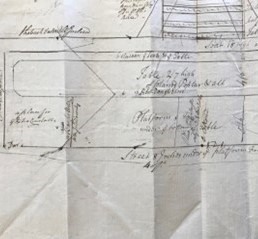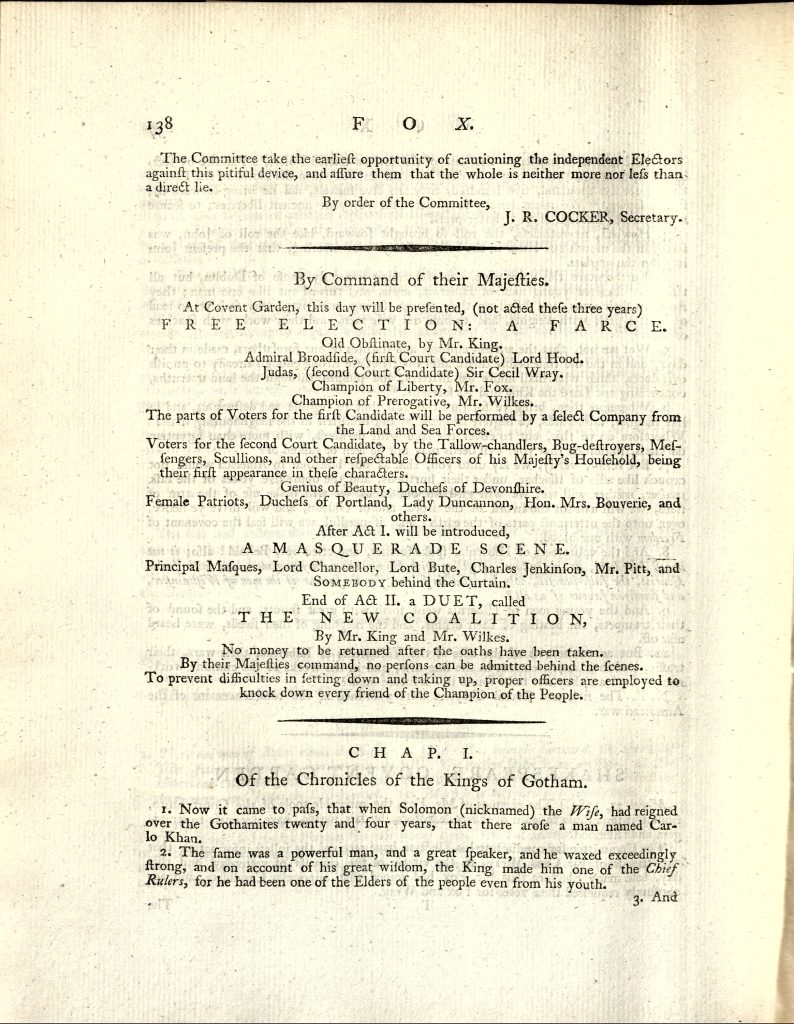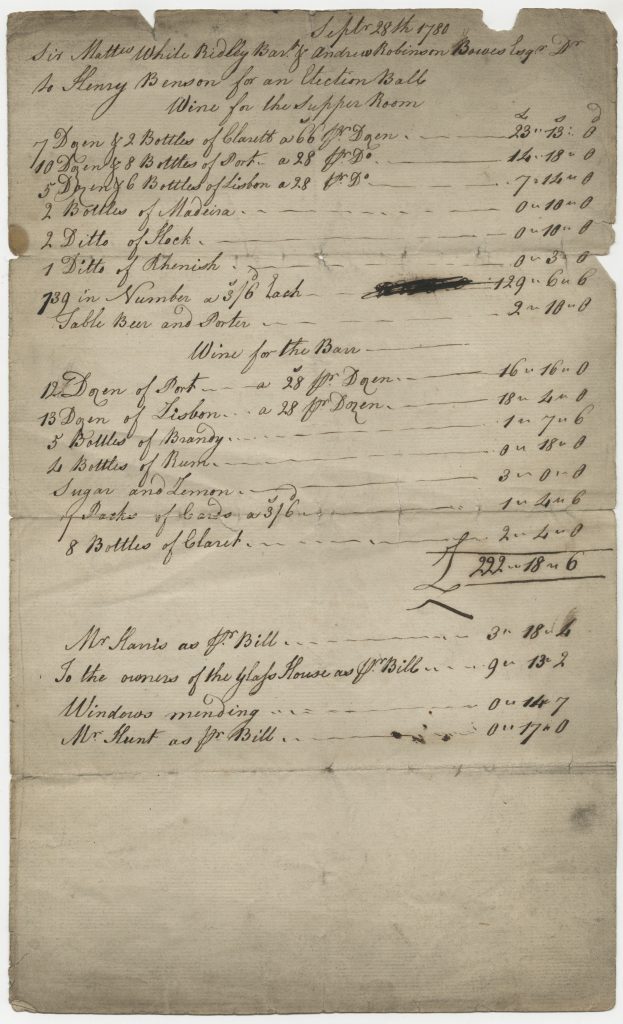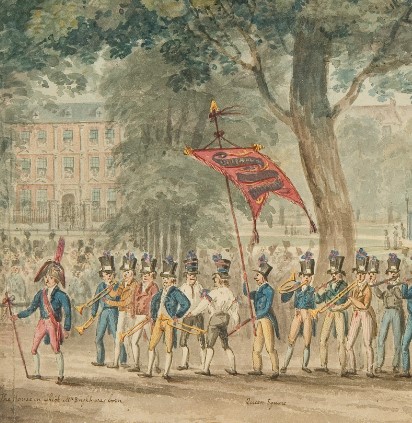Although technically illegal, bribery was rife in eighteenth-century elections. [15-minute read] Technically, the Corrupt Practices Act of 1695 and the Bribery Act of 1729 made bribery illegal, but it remained endemic to the electoral process. Votes could often be bought, and, with no secret ballot, a candidate or his agents could check that individuals had […]
Bribery
